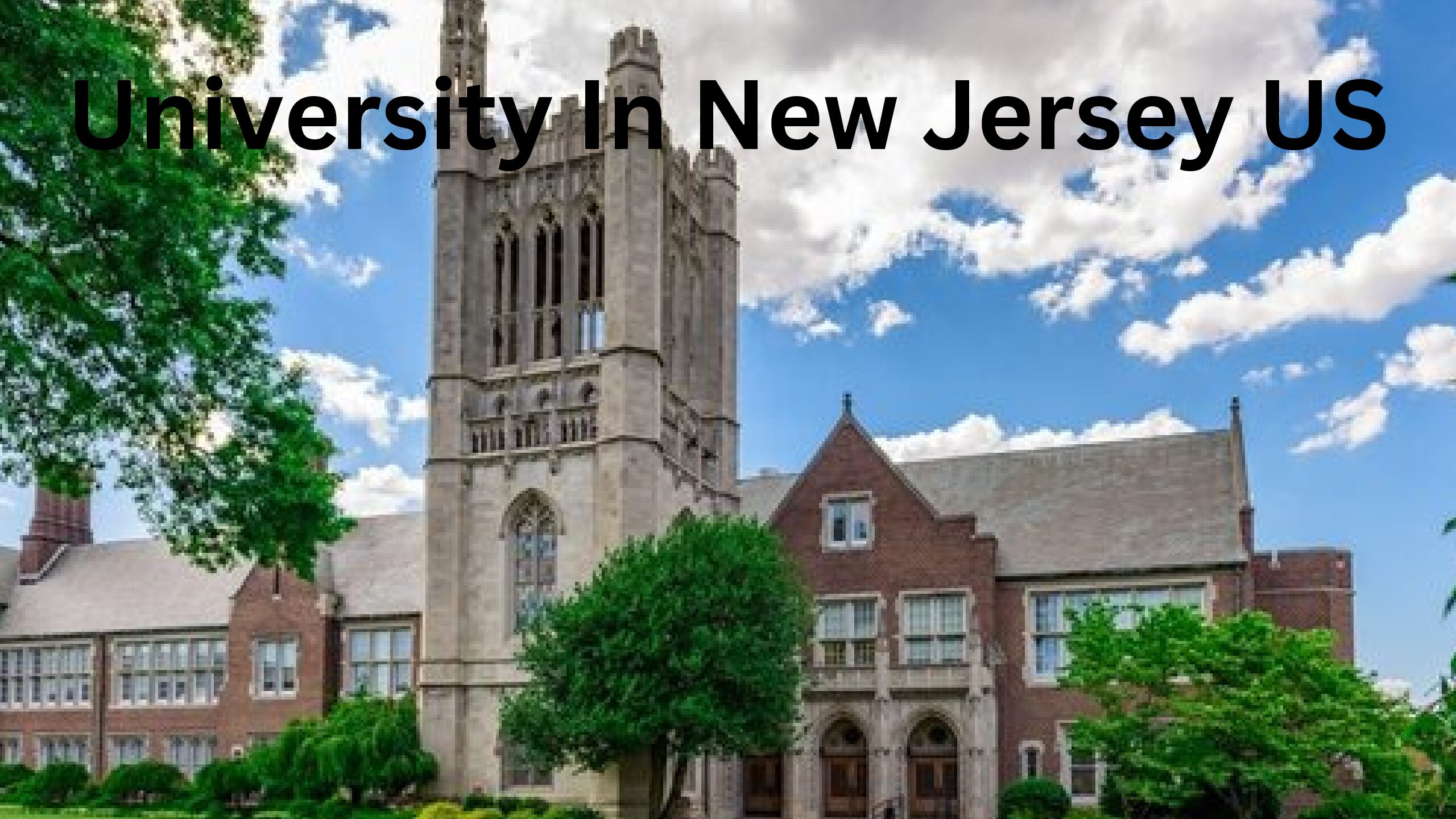Halloween Trends
University In New Jersey US

Introduction to New Jersey Universities
Overview of New Jersey’s Education System
University in New Jersey US boasts diverse higher education landscape, with numerous universities catering to academic interests and career aspirations. From bustling urban campuses to serene suburban settings, the state offers a plethora of options for prospective students. The Introduction will provide readers with an overview of the state’s rich educational heritage and the significance of selecting the right university to pursue their academic goals.
Importance of Choosing the Right University
Selecting the right university is a pivotal decision that can significantly impact one’s academic journey and future career prospects. This section will delve into the various factors that students should consider when evaluating potential universities in New Jersey, including academic programs, campus culture, and career opportunities. By emphasizing the importance of thorough research and thoughtful deliberation, readers will gain valuable insights into the significance of making an informed choice.
History and Evolution of Universities in New Jersey
Early Beginnings
The history of universities in New Jersey dates back to the colonial era, with the establishment of institutions such as Princeton University, which was founded in 1746. This section will explore the early origins of higher education in the state, highlighting the role of religious institutions and private philanthropy in shaping the educational landscape.
Milestones in Higher Education Development
Throughout the centuries, New Jersey has witnessed significant milestones in the development of its higher education sector. From the founding of Rutgers University, the state’s flagship public institution, to the expansion of community colleges across the region, this section will chronicle key moments in the evolution of New Jersey’s university system.
Modernization and Expansion
In recent decades, New Jersey’s universities have undergone a period of modernization and expansion, driven by advancements in technology, changes in pedagogy, and shifts in demographic trends. This section will examine the contemporary challenges and opportunities facing higher education institutions in the state, including efforts to promote diversity, equity, and inclusion.
Types of Universities in New Jersey
Public Universities
New Jersey is home to a diverse array of public universities, ranging from comprehensive research institutions to specialized colleges focused on specific disciplines. This section will provide an overview of the state’s public university system, highlighting notable institutions such as Rutgers University, New Jersey Institute of Technology (NJIT), and Stockton University.
Private Universities
In addition to public institutions, New Jersey boasts a vibrant private university sector, comprising prestigious Ivy League schools, liberal arts colleges, and religiously affiliated institutions. This section will explore the unique characteristics and academic offerings of private universities in the state, including Princeton University, Seton Hall University, and Drew University.
Community Colleges
Community colleges play a vital role in New Jersey’s higher education ecosystem, providing accessible and affordable pathways to postsecondary education for students of all backgrounds. This section will examine the mission and impact of community colleges in the state, highlighting their contributions to workforce development, adult education, and lifelong learning initiatives.
Academic Programs and Majors Offered
STEM Programs
New Jersey’s universities offer a diverse array of STEM (Science, Technology, Engineering, and Mathematics) programs, ranging from cutting-edge research initiatives to hands-on experiential learning opportunities. This section will showcase the innovative STEM curriculum offered by institutions such as Stevens Institute of Technology and Rowan University, highlighting interdisciplinary collaborations and industry partnerships.
Liberal Arts and Humanities
For students interested in exploring the complexities of human society and culture, New Jersey’s universities offer a rich array of liberal arts and humanities programs. This section will delve into the diverse array of disciplines encompassed by the liberal arts, from literature and philosophy to history and anthropology, showcasing the intellectual breadth and depth of offerings available to students.
Admission Process and Requirements
Application Procedures
The admission process for universities in New Jersey typically begins with the submission of an application form through the institution’s online portal or mail. Prospective students are required to provide personal information, academic transcripts, standardized test scores (such as the SAT or ACT), letters of recommendation, and a personal statement or essay. Additionally, some universities may require supplemental materials or portfolio submissions for certain programs or majors. It’s essential for applicants to carefully review and adhere to all instructions provided by the admissions office to ensure a complete and timely application submission.
Admission Criteria
Admission criteria vary among universities in New Jersey and may include factors such as high school GPA, standardized test scores, extracurricular activities, letters of recommendation, and personal essays. While academic performance is a crucial consideration, admissions committees also assess applicants’ extracurricular involvement, leadership potential, and personal qualities. Some universities may utilize a holistic review process, taking into account the overall profile of the applicant rather than relying solely on academic metrics. Understanding the specific admission criteria for each university and program is essential for prospective students to enhance their chances of acceptance.
Standardized Testing Requirements
Many universities in New Jersey require applicants to submit standardized test scores, such as the SAT or ACT, as part of the admissions process. These tests are used to assess students’ academic readiness for college-level coursework and serve as a standardized measure of cognitive abilities. While some universities have adopted test-optional policies in recent years, others still consider standardized test scores as an important component of the application review process. Prospective students should familiarize themselves with the testing requirements of each university to determine whether or not they need to take the SAT or ACT and how their scores will be evaluated in the admissions process.
Application Deadlines
Application deadlines vary among universities in New Jersey and may differ depending on whether students are applying for early decision, early action, or regular decision admission. It’s crucial for applicants to carefully review and adhere to the specific deadlines established by each institution to ensure their applications are considered for admission. Missing application deadlines can significantly impact students’ chances of acceptance, as universities typically have limited capacity and may not be able to accommodate late submissions. By staying organized and planning ahead, prospective students can maximize their opportunities for admission to universities in New Jersey.
Campus Life and Facilities
Residential Facilities
The residential facilities offered by universities in New Jersey play a crucial role in shaping students’ overall college experience. From traditional dormitories to apartment-style housing, universities strive to provide comfortable and supportive living environments for their students. Residential facilities typically include amenities such as communal lounges, study areas, laundry facilities, and recreational spaces. Additionally, many universities offer themed housing options, such as honors communities or substance-free floors, to cater to students’ diverse interests and preferences. Living on campus provides students with opportunities to forge lifelong friendships, engage in extracurricular activities, and immerse themselves in the vibrant campus community.
Dining Options
Dining options are an essential aspect of campus life, and universities in New Jersey offer a wide range of culinary choices to accommodate students’ diverse tastes and dietary preferences. From on-campus cafeterias and food courts to specialty dining venues and food trucks, students have access to a variety of dining experiences to suit their needs. Many universities also prioritize sustainability and wellness initiatives in their dining services, offering locally sourced ingredients, organic options, and vegetarian/vegan menus. Additionally, meal plans are available to students, providing convenient access to dining facilities and ensuring they have access to nutritious meals throughout the academic year.
Recreational Activities
In addition to academic pursuits, universities in New Jersey offer a plethora of recreational activities to promote students’ physical health and well-being. Campus recreation centers typically feature state-of-the-art fitness equipment, indoor and outdoor sports facilities, group exercise classes, and intramural sports leagues. Students can participate in recreational activities such as basketball, volleyball, soccer, swimming, yoga, and rock climbing, among others. These opportunities not only help students stay active and de-stress but also foster a sense of community and camaraderie among peers. Whether students are competitive athletes or casual enthusiasts, there are ample opportunities for them to engage in physical activity and pursue their passions outside the classroom.
Sports and Athletics
Sports and athletics are an integral part of campus life at universities in New Jersey, providing students with opportunities to compete, stay active, and demonstrate school spirit. From NCAA Division I programs to club and intramural sports teams, universities offer a wide range of athletic opportunities to suit students’ interests and skill levels. Varsity sports such as football, basketball, soccer, baseball, and lacrosse garner widespread attention and support from the university community, with students, faculty, staff, alumni, and fans rallying behind their teams at games and events. Participation in sports and athletics not only promotes physical fitness and teamwork but also instills valuable life skills such as discipline, resilience, and leadership.
FAQs
1. How do I choose the right university in New Jersey?
Choosing the right university involves considering factors such as academic programs, campus culture, location, financial aid opportunities, and career prospects. Researching each university’s offerings, visiting campus, speaking with current students and faculty, and evaluating your own academic and personal preferences can help you make an informed decision.
2. What are the top-ranked universities in New Jersey?
Some of the top-ranked universities in New Jersey include Princeton University, Rutgers University, Stevens Institute of Technology, New Jersey Institute of Technology (NJIT), and Seton Hall University. These institutions are renowned for their academic excellence, research contributions, and vibrant campus communities.
3. How can I apply for financial aid?
To apply for financial aid, prospective students must complete the Free Application for Federal Student Aid (FAFSA) form, which is used to determine eligibility for federal grants, loans, and work-study programs. Additionally, students should explore scholarship opportunities offered by universities, private organizations, and government agencies to help offset the cost of tuition and other expenses.
4. What campus facilities are available for students?
Campus facilities vary by university but typically include libraries, student centers, dining halls, recreational centers, academic buildings, and residential halls. Additionally, many universities offer amenities such as fitness centers, health clinics, counseling services, and cultural centers to support students’ academic, social, and emotional well-being.
5. Can international students apply to universities in New Jersey?
Yes, international students are welcome to apply to universities in New Jersey. Each university has specific admission requirements and procedures for international applicants, which may include demonstrating English proficiency, submitting academic transcripts, providing proof of financial support, and obtaining a student visa. Prospective international students should consult the admissions office of their desired university for detailed information and guidance throughout the application process.
Conclusion
Choosing a university in New Jersey is a significant decision, offering a wide range of opportunities for academic and personal growth. With diverse programs, vibrant campus life, and ample support services, students can find their ideal educational environment. Remember to explore all options, engage in campus activities, and seek guidance when needed. Your journey through higher education in New Jersey promises to be transformative and fulfilling.
Halloween Trends
Powering Dreams: Exploring Columbia University in New York

Welcome to the captivating realm of Columbia University in New York, a beacon of intellectual brilliance nestled in the bustling heart of the Big Apple. From its founding in 1754 to its current standing as a global leader in higher education, Columbia University has consistently epitomized academic excellence and innovation.
Unveiling the Legacy: Columbia University in New York
Embark on a journey through time as we delve into the storied past and illustrious present of Columbia University in New York.
The Birth of a Titan: Founding and History
Dive into the origins of Columbia University, tracing its inception back to the colonial era and exploring pivotal moments that shaped its trajectory.
Architectural Marvels: Campus Highlights
Immerse yourself in the architectural splendor of Columbia University’s campus, from the iconic Low Library to the tranquil haven of Morningside Heights.
Academic Eminence: Programs and Departments
Explore the diverse array of academic programs and departments that distinguish Columbia University as a hub of intellectual exploration and scholarly achievement.
Global Impact: Research and Innovation
Uncover the groundbreaking research initiatives and innovative projects that cement Columbia University’s status as a global powerhouse of knowledge creation.
Cultural Melting Pot: Diversity and Inclusion
Celebrate the vibrant tapestry of cultures and perspectives that thrive within the diverse community of Columbia University, fostering a spirit of inclusivity and collaboration.
Student Life Extravaganza: Clubs and Activities
Embark on a whirlwind tour of student life at Columbia University, where a myriad of clubs, organizations, and extracurricular activities await to enrich the collegiate experience.
Inspirational Figures: Notable Alumni
Pay homage to the luminaries and trailblazers who once walked the hallowed halls of Columbia University, leaving an indelible mark on the world stage.
Beyond the Classroom: Internship and Career Opportunities
Unlock a treasure trove of internship and career opportunities available to Columbia University students, paving the way for future success in diverse fields and industries.
Embracing Innovation: Technology and Entrepreneurship
Discover the dynamic nexus of technology and entrepreneurship at Columbia University, where aspiring innovators and visionaries turn their bold ideas into reality.
Sustainability Crusade: Environmental Initiatives
Delve into Columbia University’s commitment to sustainability and environmental stewardship, spearheading initiatives to create a greener, more sustainable future.
Community Engagement: Outreach and Service
Witness the transformative impact of Columbia University’s community engagement efforts, as students, faculty, and staff come together to serve and uplift those in need.
Future Horizons: Vision and Growth
Peer into the future as Columbia University continues to evolve and expand its horizons, blazing trails of innovation and excellence in the ever-changing landscape of higher education.
Frequently Asked Questions (FAQs)
- What majors are offered at Columbia University in New York? Columbia University offers a diverse range of majors spanning arts, humanities, sciences, engineering, and more, catering to a wide array of academic interests and aspirations.
- Is Columbia University in New York a part of the Ivy League? Yes, Columbia University is a proud member of the esteemed Ivy League, renowned for its academic prestige and rigorous standards of excellence.
- How competitive is admissions at Columbia University? Admissions to Columbia University are highly competitive, with acceptance rates typically hovering around the single digits. However, the university values holistic evaluation of applicants, considering factors beyond just academic achievements.
- What is the campus atmosphere like at Columbia University? Columbia University boasts a vibrant and dynamic campus atmosphere, characterized by intellectual curiosity, cultural diversity, and a spirit of innovation.
- Are there opportunities for undergraduate research at Columbia University? Yes, Columbia University offers abundant opportunities for undergraduate research across various disciplines, allowing students to engage in hands-on learning and contribute to cutting-edge discoveries.
- How can prospective students schedule a campus visit to Columbia University? Prospective students can schedule a campus visit to Columbia University through the university’s admissions office website, where they can explore campus tours, information sessions, and other visitation options.
Conclusion
In conclusion, Columbia University in New York stands as a beacon of academic excellence, innovation, and inclusivity, shaping the minds of future leaders and pushing the boundaries of knowledge. From its rich history to its vibrant campus life, Columbia University offers a transformative educational experience like no other.
-

 Thanksgiving Trends9 months ago
Thanksgiving Trends9 months agoHappy Thanksgiving: Tips for a Joyful and Stress-Free Celebration
-

 Thanksgiving Trends8 months ago
Thanksgiving Trends8 months agoUnique & Attractive Snoopy Thanksgiving Decorations 2023 – 2024
-

 Christmas Trends8 months ago
Christmas Trends8 months ago10 Unforgettable Christmas Gift Ideas That Will Make Their Spirits Soar!
-

 Christmas Trends8 months ago
Christmas Trends8 months agoBest & Unique Minimalist Christmas Decor Ideas 2023 – 2024
-

 Thanksgiving Decor8 months ago
Thanksgiving Decor8 months agoUnique Paper Thanksgiving Decorations for a Green Celebration 2023 – 2024
-

 Christmas Trends8 months ago
Christmas Trends8 months ago70+ Best & Cheap Outdoor Christmas Decorations for 2024 – 2025
-

 Thanksgiving Trends9 months ago
Thanksgiving Trends9 months agoThanksgiving Fun Traditional Activities Ideas in 2023 – 2024
-

 Thanksgiving Trends9 months ago
Thanksgiving Trends9 months agoBest Thanksgiving Vacation Ideas for Families in 2023 – 2024



